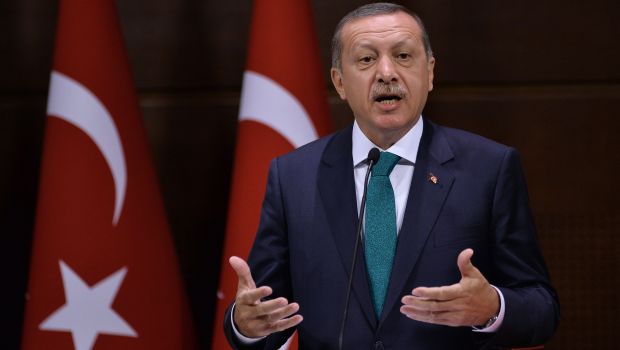The arrests that took place on December 17 in Turkey have been described by leaders of the Justice and Development Party (AKP) as a carefully planned provocation orchestrated by the Fethullah Gülen group in a bid to oust the government of Recep Tayyip Erdoğan and forge a new political alliance that serves certain groups inside and outside Turkey. However, Fethullah Gülen’s movement responded that it was Erdoğan who had incited the crisis by stabbing the Islamic movement in the back by targeting the Gülen movement’s schools—the source of the group’s strength, popularity and continued existence.
This is an ongoing crisis and does not appear close to being resolved, as is evidenced by the continued exchange of statements and criticisms.
Erdoğan had previously failed to persuade the AKP to reduce pressure on the secularist former Chief of Staff, İlker Başbuğ, who had been implicated in the Ergenekon coup, calling on his own party to deal with him in a manner that befits his status and national service. But it appears that Erdoğan has learned his lesson. He refused to tolerate the pressure being exerted on him by the Gülen movement, particularly following the arrest warrant issued against a former Turkish intelligence chief on charges of communicating with the Kurdistan Workers’ Party (PKK). It appeared as if the Gülen movement was voicing objections to the government’s handling of the Kurdish issue and its attempts to secure peace with the PKK.
The Gülen movement appeared to beat Erdoğan and his government on certainly points last week, with the mass arrest of dozens of government officials and businessmen with closes ties to the AKP under the slogan “War on corruption, bribery and cronyism.” However, the Islamic movement now seems to have retreated and decided to reposition itself in the battle after Erdoğan survived accusations of corruption aimed at his own son, along with other family members.
Erdoğan accepts that his government has been betrayed and rocked by its erstwhile allies. Yet he clearly believes that the ruling party was able to absorb the first blow and while this may have been painful it was not a knockout punch. This is evidenced by the movements he has made on all fronts to ensure the success of his own massive campaign against the Gülen movement, whenever its members may be and regardless of their positions.
The following is a summary of how Erdoğan summarized the recent events, their objectives and the government’s future strategy for confrontation during a meeting with nearly fifty prominent journalists, intellectuals and academics in Turkey that lasted for four hours.
He said that the AKP is aware of what the Gülen movement will seek to do next, adding that the government will respond in kind and from a position of strength. He claimed that the Gülen movement had sought to overthrow the government away from the ballot box.
Erdoğan claimed that the Gülen movement wanted to portray AKP and Al-Qaeda as one, so that Ankara appeared to the world as a government that backs terrorism, while also rejecting his former allies’ attempts to drive a wedge between himself and president Gül.
The Turkish prime minister said that his aim was not to eliminate the Gülen movement, but to eliminate the parallel state that had emerged in Turkey.
Erdoğan seems to have won over Turkish Kurds with his confrontation of the Gülen movement. This was manifested in the PKK claims indicating that it was the Gülen movement that was responsible for the killings of a number of its leaders in Paris last year. Meanwhile, the Kurdish Peace and Democracy Party accused the Gülen movement of seeking to fabricate a crisis in order to block the way for the Kurdish peace process, which is making notable progress in Turkey.
Erdoğan delivered an even stronger blow this week following the release of four Kurdish MPs. These MPs were elected while behind bars, and were released following an amendment to the law. This is an indication of the new level of coordination between the government and the Kurdish leadership, which may prove to be a significant problem for the Gülen movement’s presence and influence in southeastern Turkey. Erdoğan was also successful in winning over the Kemalist head of Turkey’s Union of Bar Associations, Metin Feyzioglu, following a long meeting that ended with an agreement on extensive reforms of the judiciary. This could perhaps mark the beginning of the end of the Ergenekon trials and the release of many secularist figures.
During the meeting, Erdoğan reminded those present that attempts are ongoing to “defame” Turkey. He pointed to a Turkish truck being being stopped at the border amid accusations of weapons being transferred to Al-Qaeda-linked groups in Syria. Had it not been for the intervention of Turkey’s Interior Ministry, which announced that the truck was carrying cargo to the Turkmen in Syria under the supervision of the Turkish Intelligence Apparatus, Ankara’s reputation would have been harmed internationally.
